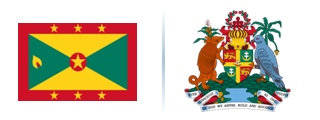Last Update: September 2025


| International Covenant on Economic, Social and Cultural Rights | International Convention on the Elimination of all Forms of Racism | Convention on the Rights of Persons with Disabilities | Convention on the Elimination of all Forms of Discrimination against Women | Convention on the Rights of the Child | International Convention on the Protection of the Rights of All Migrant Workers and Members of their Families | Constituent Agreement of the Development Fund for Indigenous Peoples in Latin America and the Caribbean |
| 6 September 1991 | 10 May 2013 | 27 August 2014 | 30 August 1990 | 5 November 1990 | 22 February 2026 | 22 February 2026 |
| View details | View details | View details | View details | View details | View details | View details |
Year of Latest Observed Constitution |
Social Housing |
Work and Social Security |
Public Health |
Public Education |
Social Development |
Children and Adolescents |
Youth/Young Adults |
Women |
Older Persons |
Persons with Disabilities |
Afrodecendants and Indigenous Peoples |
Migrants |
| 1973 | ||||||||||||
| View details | View details | View details | View details | View details | View details | View details | View details | View details | View details | View details | View details |
Children and Adolescents |
Youth/Young Adults |
Older Persons |
Women |
Peoples with Disabilites |
Afrodescendants and Indigenous Peoples |
Migrants |
Public Education |
Work and Social Security |
Social Housing |
Public Health |
Social Development |
|
| Legal Instrument | n.d. | n.d. | n.d. | n.d. | n.d. | n.d. | Act N 26 of 1969, Chapter 145 | n.d. | n.d. | n.d. | n.d. | n.d. |
| Law |
| Country | Grenada |
| Main authority | |
| Year of creation | |
| Coordinating authority | |
| Members |
| Country | Grenada |
| Main authority | Ministry of Social & Community Development, Housing and Gender Affairs |
| Year of creation | 2004 |
| Mission | La prestación de servicios orientados a la resolución de problemas individuales y familiares, el alivio de la pobreza, la rehabilitación de los discapacitados, personas desfavorecidas, privados y Los afectación por la crisis y los desastres naturales. Contribuir a la mejora de la calidad de vida de los ciudadanos mediante la disponibilidad de recursos de la tierra, vivienda y mecanismos para un desarrollo comunitario sostenible. Para ello el Ministerio procura funcionar como una organización accesible y orientada a la prestación de servicios para mejorar la calidad de vida de los Granadinos mediante la utilización eficiente y eficaz de los recursos disponibles para el adelanto d elos asentamientos humanos. A través del desarrollo de políticas y de conjunto de servicios de bienestar social, el Ministerio busca proveer una mejoría equitativa y sustentable en la calidad de vida de todos los ciudadanos, en particular de los más necesitados, los adultos mayores, las fasmilias, las víctimas de abusos, niños, jóvenes infractores de la ley y personas con la necesidad inmediata de asistencia financiera y material. |
| Incumbent | Gloria A. Thomas (2024) |
| Population segment | Children and Adolescents |
Youth/Young Adults |
Older Persons |
Persons with Disabilities |
Women |
Migrants |
| Main protection mechanism | Ministry of Legal Affairs | |||||
| Legal Instrument | Act N 26 of 1969, Chapter 145 |
|
Technical-operational dimension | |||||||
| Unique Registry of Participants | Sistema Integrado de Administración Financiera /b | Sectoral Plan for Social Development | Transparence - system for accessing public information from the State | Integrated Social Information System |
Evaluation mechanisms for social programs |
|||
General |
Sectorial |
General |
Sectorial |
|||||
| Does not information | ||||||||